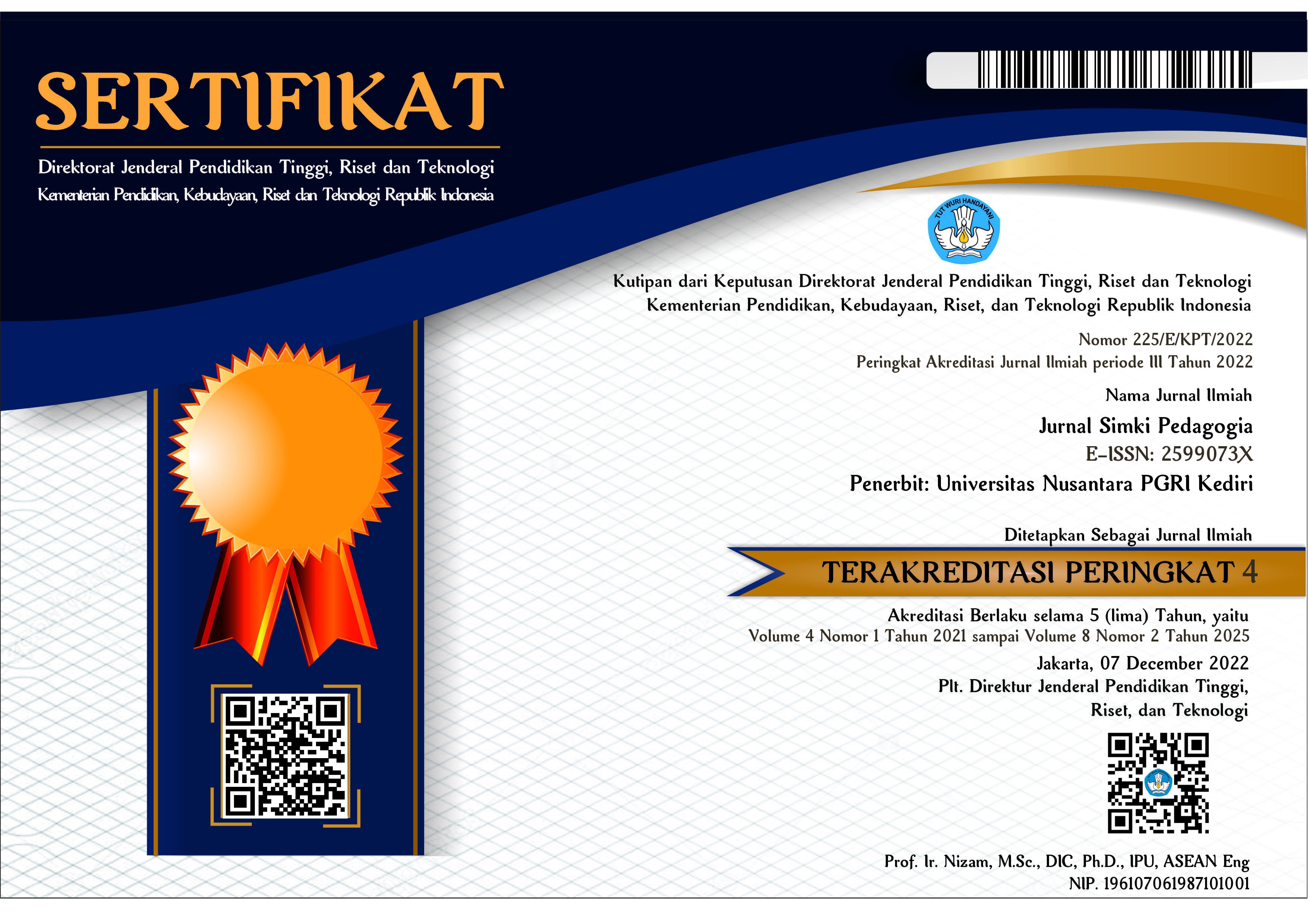Prinsip Dasar Penyelengaraan Pendidikan dan Pohon Keilmuan Pendidikan Dasar
 Abstract views: 1014
,
Abstract views: 1014
,
 PDF (Bahasa Indonesia) downloads: 1567
PDF (Bahasa Indonesia) downloads: 1567
Abstract
In this article, we will discuss the basic principles of education and basic scientific trees. With the aim of research to find out and as additional references relating to the basic principles of education. The research method used is descriptive quantitative with the process of giving questionnaires to teachers regarding the four principles to explore how their perspectives will form the scientific tree and its urgency. The results state that all principles are important to note because they affect the way the teacher thinks and behaves during learning. The position of the scientific tree itself is the main basis for teachers to think and act to achieve learning success. For this reason, these principles are the roots that underlie strengthening what teachers and gentlemen will do in the future. For this reason, the teacher's activities that adapt the sociological, anthropological and psychological philosophical principles must really be considered because it will affect the success of the educational process they are carrying out.
Downloads
References
Amri, U., Rifma, & Syahril. (2021). Konsistensi Kebijakan Pendidikan di Indonesia. EDUKATIF : JURNAL ILMU PENDIDIKAN, 3(5), 2200–2205.
Daga, A. T. (2021). Makna Merdeka Belajar dan Penguatan Peran Guru di Sekolah Dasar. Jurnal Educatio FKIP UNMA, 7(3), 1075–1090. https://doi.org/10.31949/educatio.v7i3.1279
Muaz. (2022). Paradigma integrasi ilmu perspektif pohon ilmu uin maulana malik ibrahim malang. Al Afkar : Jurnal For Islamic Studies, 5(1), 302–319.
Noventari, W. (2020). Konsepsi Merdeka Belajar Dalam Sistem Among Menurut Pandangan Ki Hajar Dewantara. Pkn Progresif, 15(1), 83–91.
Prastowo, A. I. (2020). Konsep konsientisasi Paulo Freire dan relevansinya terhadap pendidikan islam. Jurnal Suhuf, 32(1), 1–13.
Putri, D. E., Arta, I. P. S., Silaen, N. R., & Setiawan, U. (2016). Manajemen Perubahan (Cetakan Pe). Penerbit Widiana.
Rasid, A. (2018). Implikasi Landasan Pemikiran Pendidikan. Al Fikrah, 1(1), 1–15.
Sabarua, J. O., & Mornene, I. (2020). Komunikasi Keluarga dalam Membentuk Karakter Anak. International Journal of Elementary Education, 4(1), 82–89. https://doi.org/10.23887/ijee.v4i1.24322
Saebani, B. A., & Sutisna, Y. (2018). Metode Penelitian (Edisi Revisi). CV Pustaka Setia.
Sholikha, S. N., & Fitrayati, D. (2021). Integrasi Keterampilan 4C dalam Buku Teks Ekonomi SMA/MA. Edukatif: Jurnal Ilmu Pendidikan, 3(5), 2402–2418. https://www.edukatif.org/index.php/edukatif/article/view/823
Siswanto. (2015). Filsafat dan Pemikiran Pendidikan Islam. Pena Salsabila.
Sugiyono. (2019). Metode Penelitian Kuantitatif, Kualitatif dan R&D (Sutopo (ed.)). Alfabeta.
Sulastini, R. (2018). Reposisi Filosofi Pendidikan Dalam Proses Pembelajaran. Insania, 23(1), 113–128.
Susanto, A. (2014). Teori Belajar dan Pembelajaran. Kencana.
Wardani, G. A. K. (2013). Hakikat Prinsip Dasar Pendidikan Dasar. In Filsafat Pendidikan Dasar (MPDR5101 ed., pp. 1–66). Gramedia Pustaka Utama.
Copyright (c) 2023 Emy Yunita Rahma Pratiwi, Anggara Dwinata

This work is licensed under a Creative Commons Attribution 4.0 International License.

Jurnal Simki Pedagogia : https://jiped.org/index.php/JSP/index is licensed under a Creative Commons Attribution 4.0 International License.
















